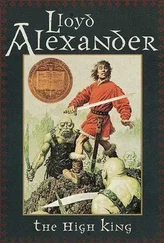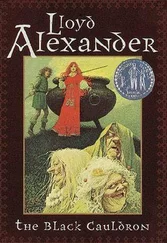I ran my tongue over my lips. “It’s not bad.”
Cook attempted to fill my glass, but I stopped her with my hand. “I shouldn’t. Dora might smell it on my breath.”
She nodded, but her eyes flickered with anger. “To hell with Dora. She needs a drink to loosen up. Most people here do… .” Her voice faded and she poured herself another shot. Her face soured. The joy she got from the bottle dissipated. “The situation is bad, Magda. The Führer rarely sees anyone but his military staff, whom he constantly berates for their ineptitude.” She tipped back the glass and swallowed her drink. “He keeps to his room. The doctor tells me he complains about his stomach and takes constant injections to keep up his energy. He looks like an old man.”
“And the war?” I asked.
“We are losing. The Red Army is on our doorstep. I’m certain it won’t be long before we must leave the Wolf’s Lair for safer quarters.”
“If I could leave now, I would.” I leaned back and drained the vodka.
Cook put her glass on the desk and sighed. “You must leave now. The Eastern Front is falling fast. The Reds could be here in a few months, perhaps a few weeks. It’s for your own good. Even the SS officers are secretly telling others to leave.”
Her suggestion caught me off guard. A hole opened in my heart as I pondered being pushed out of headquarters into the war. Suddenly, I realized how charmed my life had been despite my incarceration in Bromberg-Ost. I remembered my days at the camp and the women like Katrina and Helen who were left behind. Perhaps their liberation might come soon. There was nothing I could do about their plight.
News of the Red advance shook me. Karl had begged me to stay alive for my sake, and for the sake of our unborn child. But had I survived—and also failed in my desire to kill Hitler—because of my own selfish desire for safety? Without Hitler’s protection, I was destined to be an “ordinary German,” caught in the cross fire of approaching armies. Those around Hitler felt protected, safe from harm, despite the war. The Propaganda Minister continued to feed lies to the Reich’s citizens: The army would win the war and Hitler would protect his people. What about American and British troops? How far were they from Germany? I had no idea of their positions. How safe was my father in Berlin, a targeted city?
“The others have gone to a farmhouse outside of Rastenburg,” Cook said. “It’s near here, but safer than headquarters. You can still come to work. A car will pick you up.”
I held out my glass; I wanted another shot of vodka. Cook poured a bountiful dose. “What about you? Are you coming?”
She shook her head. “I will stay at the Wolf’s Lair. My place is by the Führer’s side, no matter what happens.”
The look on her face echoed the resolve in her voice. I could not argue with her. I wanted to tell her that staying at headquarters was suicide. I wanted to tell her about the plots to kill Hitler, the way prisoners were treated at the camps, to get the truth out, but I knew she wouldn’t listen because such things shouldn’t be talked about. I understood, but despised, her loyalty to the man she admired above all others. Hitler inspired that kind of loyalty in his personal staff. Perhaps it was his paternal attitude, his kindness and attention to their needs, that kept them in line. Why would they believe what Karl and I knew was true? They had no idea what was happening in the East or in the camps.
“The car will take you to the house after tasting tonight,” Cook said. “It shouldn’t take long the way he eats these days. I don’t see how he can live on milk and apple cake, but I suppose it helps his stomach.”
I returned to the dormitory and packed my bag once again. Oddly enough, when I searched under the bed, I found my stuffed monkey. It had been moved from the room Karl and I shared. It had lain on the floor since my unfortunate trip to Bromberg-Ost. I pulled it out, patted the dust off its furry body and put it in my suitcase. I vowed it would never leave my side again. The family mementoes had disappeared, however.
Cook was correct about tasting. It had become a perfunctory affair with little worry about Hitler being poisoned. Why poison the man when the end was near? Surely other staff members at the Wolf’s Lair knew how badly the war was going. Of course they could say nothing.
A few hours later, Else and I left for our new home.
The wooden farmhouse lay less than ten kilometers northeast of the Wolf’s Lair. The couple who owned the property was provincial but maintained a fierce loyalty to Hitler. Nazi insignia draped the mantle. Swastikas covered the pillows and the rugs. Peter and Victoria were true Prussians and intensely proud of their Germanic heritage: He stood tall and thin, while his wife was shorter and stout. He reminded me of pictures I’d seen of Otto von Bismarck when he was middle-aged. Peter wore his hair combed to the left over a long face accented by a russet beard and mustache. Victoria met us at the door and promptly offered me a bowl of goat stew. I accepted and reveled in the taste of her cooking. The stew was hearty and full of potatoes, cabbage and onions. I suspected quite a bit of their homegrown food ended up at the Wolf’s Lair. Perhaps the Nazis provided the couple with a stipend in appreciation of their “sacrifice.”
The rectangular house was filled with rustic furniture. Everything that Peter and Victoria owned came from the land, even the hand-crafted cuckoo clock over the fireplace. Else and I were not the only tasters at the house. Four other women also resided there. I had rarely spoken to them at headquarters, except to exchange greetings and small talk. The six of us shared a long cabin, with comfortable bunks and warm bedding, attached to the main house. Several cats sat on the window ledges and a yellow retriever had free run of the house.
We enjoyed our accommodations, in addition to our trips to the Wolf’s Lair. This respite in the farmhouse was much more comfortable than our cramped quarters in the Wolf’s Lair. An easy sense of familiarity and warmth pervaded the home, but winter was setting in and the mid-November evenings were growing longer and colder.
One night, whispering awakened me. I shot up in bed, horrified that something was terribly wrong.
“Magda, do you hear it?” the voice asked.
I peered into the darkness and Else’s stricken face came into view. She clutched the railing and stared at me. I was in the bunk on top of hers.
“For God’s sake, Else, what’s wrong?”
She pointed to the single window near the center of the cabin. I slipped out of bed as quietly as possible and tiptoed to it. The room was freezing in the deep of night and the cold wooden planks stung my bare feet. I opened the curtain and peered out. The dark tree line came almost to the house. Past the frosty window, a light snow fell, but I heard nothing.
“Listen,” Else whispered. She cocked an ear toward the window. “It’s been going on for about a half hour now.”
I was beginning to think Else had lost her mind. A few seconds later, light flashed through the dark branches, its yellow-whiteness fractured into shards by the thick trees. Then a soft rumble rolled to my ears. I knew what we had seen and heard wasn’t lightning and thunder. It was far too cold for a storm. We waited a few more minutes, transfixed by the falling snow. I shivered and walked back to my bed to grab a blanket. Else continued to watch at the window. She looked as small and vulnerable as a child. I stood by her side and shared my blanket. Another explosion split the sky.
“Cannon fire,” I said. “The Reds are getting close.”
The shelling continued for another half hour before ceasing. Else and I trundled back to bed, but it took me a few hours to fall asleep, thinking all the while of the advancing Red Army.
Читать дальше












